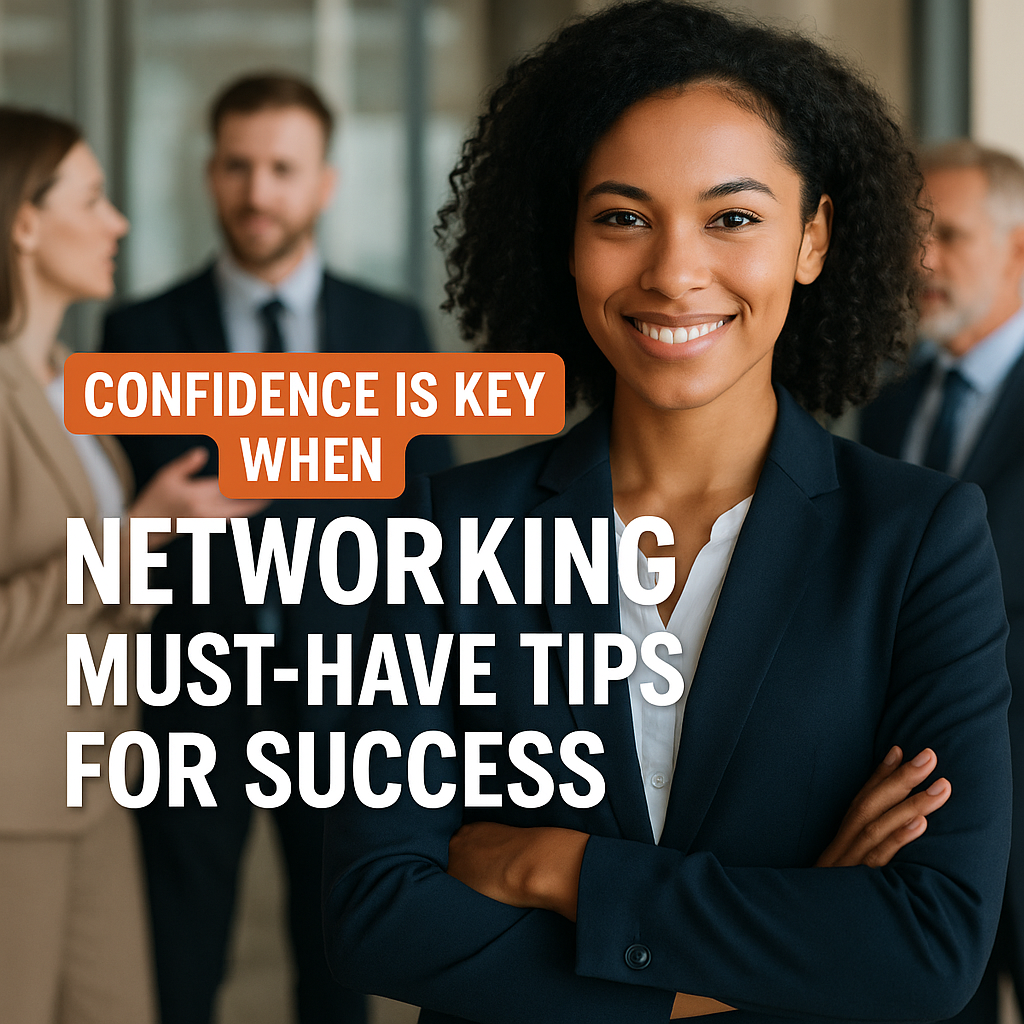Confidence Is Key When Networking: Must-Have Tips for Success
Confidence Is Key When Networking: Unlocking Opportunities Through Self-Assurance
In the world of professional growth and relationship-building, confidence is key when networking. Whether you’re attending a corporate event, joining an online forum, or reaching out to potential mentors, possessing confidence can dramatically influence your ability to connect and foster meaningful relationships. Networking is not just about exchanging business cards or LinkedIn connections; it’s about showcasing your authentic self, sharing your ideas, and making a lasting impression — all of which require a foundation of confidence.
Why Confidence Is Essential in Networking
Networking often involves stepping out of your comfort zone, initiating conversations with strangers, and presenting your skills or ideas compellingly. If you approach these interactions with self-doubt or anxiety, it can hinder the natural flow of dialogue and diminish your impact. Confidence, on the other hand, helps you articulate your value clearly, listen attentively, and respond positively — crucial components of building trust and rapport.
Confidence acts as a silent communicator. When you appear self-assured, people are more likely to pay attention and believe in your credibility. It also empowers you to handle rejection or setbacks gracefully, which are inevitable parts of networking. Instead of dwelling on negative responses, confident individuals move forward, continuously seeking new opportunities.
Building Confidence for Successful Networking
For many, confidence does not come naturally when networking, but the good news is it can be developed and strengthened over time. Here are practical strategies to cultivate confidence that will elevate your networking game:
1. Prepare and Practice
Knowledge is power. Before attending any networking event or meeting, research the attendees, companies, or industry trends. Prepare some open-ended questions and key points about yourself. Practicing your introduction and common conversation starters will also reduce anxiety and help you feel more poised during interactions.
2. Focus on Genuine Interest
Confidence grows when you shift your focus outward. Rather than worrying about how you are perceived, concentrate on showing genuine curiosity about others. People appreciate those who listen actively and respond thoughtfully. This approach not only takes the pressure off you but also fosters authentic connections.
3. Use Positive Body Language
Nonverbal cues significantly influence how others perceive you. Standing tall, maintaining eye contact, and offering a firm handshake communicate confidence silently but powerfully. Smiling and nodding indicate engagement and openness, which encourages others to interact with you more warmly.
Overcoming Common Networking Nerves
Even with preparation, it’s natural to feel nervous. Understanding common fears can help you manage them effectively:
- Fear of Rejection: Remember that networking is a numbers game. Not every contact will convert to an opportunity, and that’s okay. Each conversation is practice for the next.
- Imposter Syndrome: Many people believe they don’t deserve their success or fear being “found out.” Remind yourself of your achievements and the unique perspective you bring.
- Fear of Small Talk: Starting conversations with simple topics or shared interests can ease you into deeper discussions.
Confidence Is Key When Networking Online
In today’s digital age, networking extends far beyond in-person meetings. Virtual platforms like LinkedIn, Twitter, and professional forums offer endless opportunities. However, confidence remains just as crucial online. Crafting clear, concise messages and engaging thoughtfully with others’ content can help build your reputation and relationships.
Remember, even behind a screen, your tone and authenticity shine through. Being confident in your communication encourages others to respond and connect.
The Long-Term Benefits of Confidence in Networking
Consistently approaching networking with confidence builds a powerful professional brand. Over time, you’ll notice increased access to mentors, collaborations, job opportunities, and industry insights. Additionally, confident networking enhances your interpersonal skills, including empathy, negotiation, and leadership.
By embracing confidence as a cornerstone of your networking efforts, you position yourself for sustained success and personal growth.
Final Thoughts
Confidence is key when networking because it transforms how you present yourself and engage with others. It’s a skill that can be fostered through preparation, genuine interest, and positive body language. By managing nerves and adapting confidently to both in-person and virtual settings, you unlock a world of opportunities. Embracing confidence empowers you to build meaningful connections that can significantly shape your professional journey. Remember, every great professional relationship begins with the courage to introduce yourself — so stand tall, smile, and start connecting.







